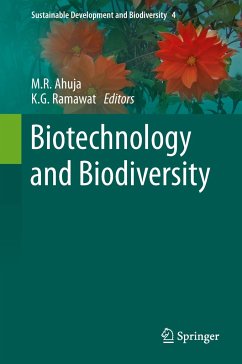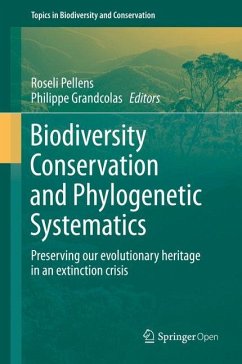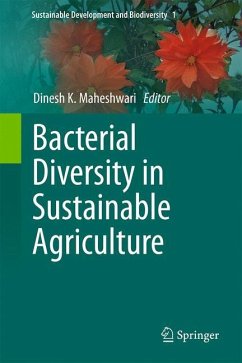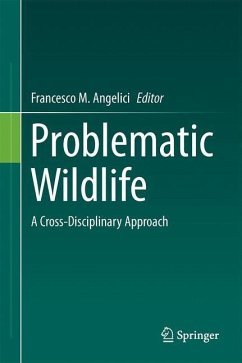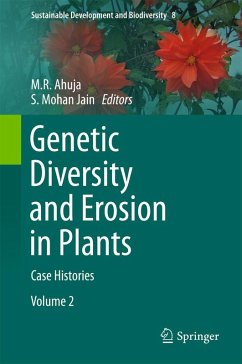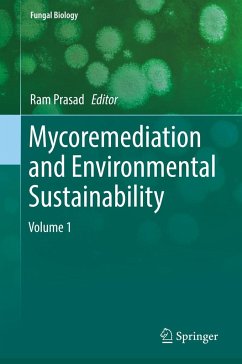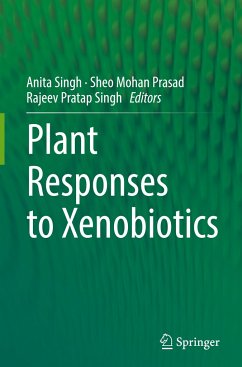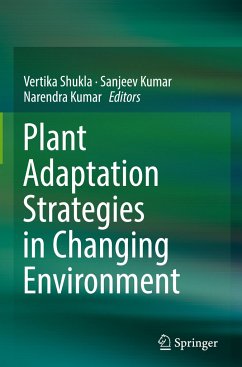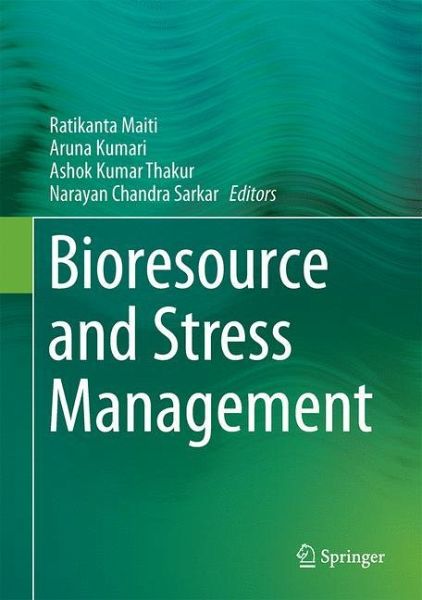
Bioresource and Stress Management

PAYBACK Punkte
57 °P sammeln!
This book is a compilation of recent global measures to conserve bio-resources and manage biotic and abiotic stresses. It highlights emerging issues related toagriculture, abiotic and biotic stress factors, ethnic knowledge, climatechange and global warming, as well as natural resources and their sustainablemanagement. It also focuses on the consolidated efforts of scientists andacademics engaged in addressing a number of issues related to resourcemanagement and combating stresses in order to protect the Earth. Cropproduction and productivity have been significantly improved, however, therehav...
This book is a compilation of recent global measures to conserve bio-resources and manage biotic and abiotic stresses. It highlights emerging issues related toagriculture, abiotic and biotic stress factors, ethnic knowledge, climatechange and global warming, as well as natural resources and their sustainablemanagement. It also focuses on the consolidated efforts of scientists andacademics engaged in addressing a number of issues related to resourcemanagement and combating stresses in order to protect the Earth. Cropproduction and productivity have been significantly improved, however, therehave been no corresponding practical advances in sustainable agriculture.This book offers a wide range of affordable approaches to managing bio-resources with a focus on sustainability. Lastly, it describes research highlights and future areas of research.





